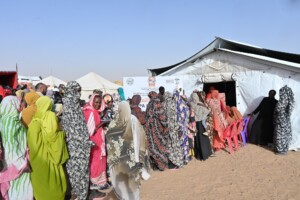‘Voluntary Work Act amendments will not benefit Sudanese civil society’
The Secretary-General of the Sudanese Civil Society Initiative, Hamid Ali, said that “the Voluntary Work Act of 2006 and the draft amendment for 2018 do not represent the Civil Society Act in its entirety; nor do the amendments or replacements benefit the civil society because it is defective in form and content”.
The Secretary-General of the Sudanese Civil Society Initiative, Hamid Ali, said that “the Voluntary Work Act of 2006 and the draft amendment for 2018 do not represent the Civil Society Act in its entirety; nor do the amendments or replacements benefit the civil society because it is defective in form and content”.
He stressed that the articles in the act confirm the failure of the state in the management of resources and human beings.
He said that civil society initiative will move forward in the coming days with a new vision of the act of voluntary work in a way that represents civil society from a national perspective to address national issues and national construction.
He stressed that civil society is working in spaces as good citizens with values and ethics because it is a cohesive and constructive element.
He explained that there is no political party that can build the country with its party vision.
He pointed out that civil society will monitor the elections in 2020.
‘Threat’
Commenting on the draft of Sudan’s new Voluntary and Humanitarian Work Act, Dr El Bagir El Afif Mukhtar, head of the El Khatim Adlan Centre for Enlightenment and Human Development, says it aims to control the civil society organisations in the country
Mukhtar said in an interview with Radio Dabanga in April that “the draft text of the bill on voluntary work which the government intends to pass this year is a bad law. Both the old law of 2006 and the one proposed this year pose a threat to the Sudanese civil society as they aim to curb its independence.
“The draft act has an undemocratic intent. It does not consider the civil society a partner and a guardian and observer of the government's actions. On the contrary, it monitors the civil society as a guard,” he said.











 and then
and then